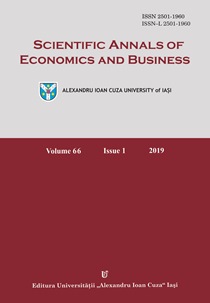Examining the Validity of Wagner's Law versus Keynesian Hypothesis:
Evidence from Turkey's Economy
Examining the Validity of Wagner's Law versus Keynesian Hypothesis:
Evidence from Turkey's Economy
Author(s): Özcan Karahan, Olcay ÇolakSubject(s): Economy, National Economy, Socio-Economic Research
Published by: Editura Universităţii »Alexandru Ioan Cuza« din Iaşi
Keywords: fiscal policy; public expenditures; economic growth; bounds test approach;
Summary/Abstract: The direction of the causality relationship between public expenditures and economic growth is one of the most controversial issues of the literature, which also causes great disagreements in the design process of economic policies. There are two approaches to this subject, which are opposite each other and called "Wagner's Law" and "Keynesian Hypothesis". This paper aims to examine the validity of Wagner's law and Keynesian proposition in Turkey using Autoregressive Distributed Lag (ARDL) model over the period of 1998-2016. The findings supported the "Keynesian Hypothesis", which advocates a one-way causality relationship from public spending to national output. More specifically, the results of the study showed that the effect of public expenditures on economic growth was positive in the short term and negative in the long term. From an economic policy standpoint, it can be argued that policymakers can promote Turkish economic growth through expansionary fiscal policies in the short run.
Journal: Scientific Annals of Economics and Business
- Issue Year: 66/2019
- Issue No: 1
- Page Range: 117-130
- Page Count: 14
- Language: English

